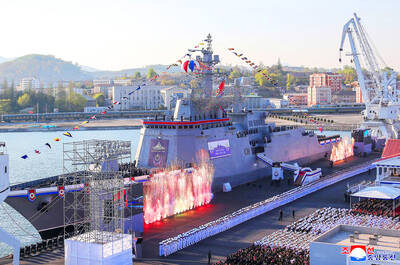Thousands of cancer patients in Canada, the US and other countries have had their medical tests postponed because of a problem with a Canadian nuclear reactor that produces medical isotopes used to diagnose and treat such cases.
The isotope shortage is the result of a prolonged shutdown of the reactor in Chalk River, Ontario, which supplies about two-thirds of the multibillion-dollar medical isotopes market to hospitals around the world.
Harried doctors warned that a shortage of nuclear material because of a prolonged shutdown of the federally owned reactor is getting worse with each passing day, causing many patients to worry.
"Last week, I guess you could describe it as struggling. This week it's devastating, and next week potentially catastrophic," said Chris O'Brien, president of the Ontario Association of Nuclear Medicine.
When injected into patients the isotopes allow medical imaging equipment to track the spread of cancers within the body. The isotope is also used in about 90 percent of all imaging studies in nuclear medicine
More than 20 million patients in Canada and the US, most of them with cancer or heart disease, undergo nuclear medicine procedures every year.
Most of those procedures, in which doctors make critical treatment decisions, depend on the technetium isotopes which are now in short supply.
The isotope shortage is also being acutely felt as far away as the East Asia and South America, both of which also depend on Canada for medical isotopes.
"A lot of places are typically operating at 20 to 40 percent capacity," said Alexander McEwan, president of the Virginia-based Society of Nuclear Medicine. "It's approaching very dire. Within the next one to three weeks, there will be very real adverse impact on patient care."
O'Brien estimated that Ontario is now down to about half of its normal nuclear scan capacity, and even less in some smaller centers. As a result, about 1,000 patients a day are having their tests put off.
In addition, pressure is also building on the alternatives: certain drugs that are being used instead of the isotopes are beginning to run out.
Canadian Health Minister Tony Clement said the government's "three-point plan" to deal with the situation involves looking for supply sources abroad, looking at alternative isotopes and considering alternative procedures.
Other countries will undoubtedly start seeking out other suppliers, McEwan and O'Brien said.
The unplanned, indefinite shutdown of the federally owned Atomic Energy of Canada reactor has crippled Ottawa-based MDS Nordion, which supplies up to 45 percent of the world's medical isotopes used in diagnostic tests.
Nordion held talks on Thursday with suppliers around the world to source emergency supplies of the reactor-produced molybdenum, which is used to make the technetium isotopes.
Two of those companies said they were scrambling to help, but warned they are limited in what they can do.
"We are working hard to be able to provide some quantities to Nordion from the end of next week," said Bernard David, head of production at Belgium's Institut National des Radioelements in Brussels.

Archeologists in Peru on Thursday said they found the 5,000-year-old remains of a noblewoman at the sacred city of Caral, revealing the important role played by women in the oldest center of civilization in the Americas. “What has been discovered corresponds to a woman who apparently had elevated status, an elite woman,” archeologist David Palomino said. The mummy was found in Aspero, a sacred site within the city of Caral that was a garbage dump for more than 30 years until becoming an archeological site in the 1990s. Palomino said the carefully preserved remains, dating to 3,000BC, contained skin, part of the

TRUMP EFFECT: The win capped one of the most dramatic turnarounds in Canadian political history after the Conservatives had led the Liberals by more than 20 points Canadian Prime Minister Mark Carney yesterday pledged to win US President Donald Trump’s trade war after winning Canada’s election and leading his Liberal Party to another term in power. Following a campaign dominated by Trump’s tariffs and annexation threats, Carney promised to chart “a new path forward” in a world “fundamentally changed” by a US that is newly hostile to free trade. “We are over the shock of the American betrayal, but we should never forget the lessons,” said Carney, who led the central banks of Canada and the UK before entering politics earlier this year. “We will win this trade war and

‘BODIES EVERYWHERE’: The incident occurred at a Filipino festival celebrating an anti-colonial leader, with the driver described as a ‘lone suspect’ known to police Canadian police arrested a man on Saturday after a car plowed into a street party in the western Canadian city of Vancouver, killing a number of people. Authorities said the incident happened shortly after 8pm in Vancouver’s Sunset on Fraser neighborhood as members of the Filipino community gathered to celebrate Lapu Lapu Day. The festival, which commemorates a Filipino anti-colonial leader from the 16th century, falls this year on the weekend before Canada’s election. A 30-year-old local man was arrested at the scene, Vancouver police wrote on X. The driver was a “lone suspect” known to police, a police spokesperson told journalists at the

North Korean leader Kim Jong-un has unveiled a new naval destroyer, claiming it as a significant advancement toward his goal of expanding the operational range and preemptive strike capabilities of his nuclear-armed military, state media said yesterday. North Korea’s state-run Korean Central News Agency (KCNA) said Kim attended the launching ceremony for the 5,000-tonne warship on Friday at the western port of Nampo. Kim framed the arms buildup as a response to perceived threats from the US and its allies in Asia, who have been expanding joint military exercises amid rising tensions over the North’s nuclear program. He added that the acquisition